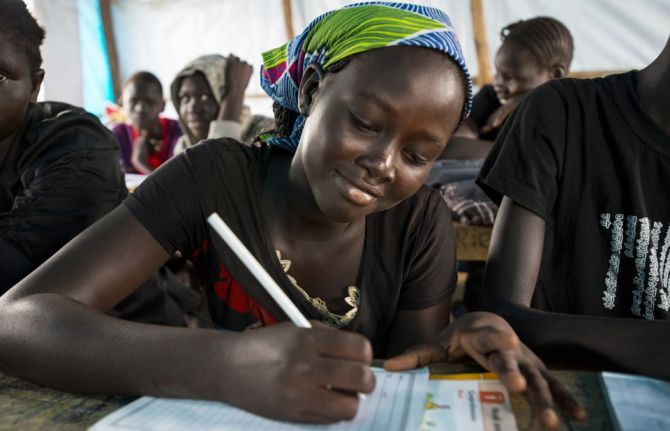

Update
International Day of the Girl Child: empowering girls before, during and after crises
11 October 2017
11 October 2017 11 October 2017The International Day of the Girl Child, marked every year on 11 October, highlights and addresses the needs and challenges that girls face, while promoting their empowerment and human rights.
In many parts of the world, one of the key challenges that adolescent girls face is HIV. Globally, every week 6900 adolescent girls and young women aged 15–24 years are newly infected with HIV, yet only one in three adolescent girls and young women have comprehensive and correct knowledge of how to prevent HIV. In sub-Saharan Africa, three in four new HIV infections among 15–19-year-olds are among girls.
The theme of the International Day of the Girl Child 2017 is “EmPOWER girls: before, during and after crises”. War and conflict exacerbate the vulnerability of girls to child marriage, intensify inequality and make women and girls susceptible to both household and intimate partner violence, all of which increase the vulnerability of women and girls to HIV.
Women who experience intimate partner violence can be 50% more likely to acquire HIV than those who do not experience such violence. And adolescent girls are more vulnerable to intimate partner violence—in 22 of 32 countries with available data, young women experienced more recent intimate partner violence than older women.
International human rights obligations and the bold targets of the 2016 United Nations Political Declaration on Ending AIDS call for ending all forms of violence against women and girls, including in conflict, post-conflict and humanitarian settings. Only through promoting gender equality, eliminating violence and investing in girls empowerment together with the other targets in the Political Declaration will the world be on track to ending the AIDS epidemic by 2030.
Quotes
“Violence against women and girls is a stain on our social fabric. On the International Day of the Girl Child, I call for countries to honour their commitment to end all violence against women and girls.”



